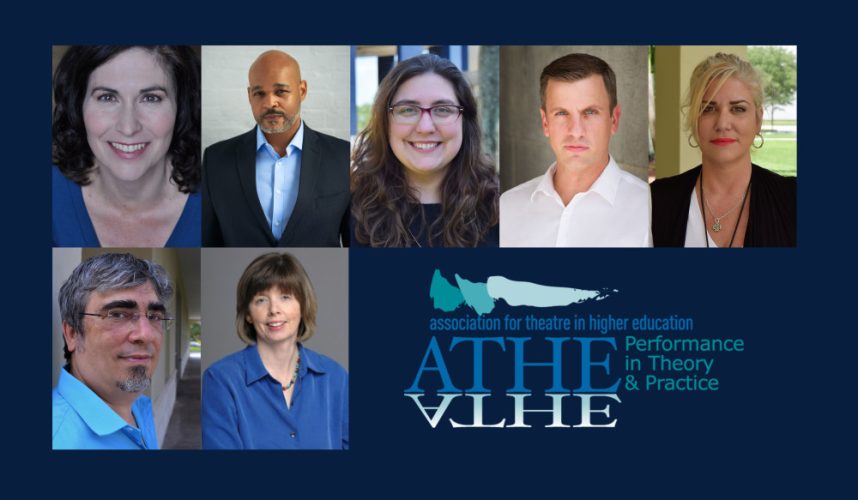FIU Theatre was well represented at the Association for Theatre in Higher Education 2023 National Conference (ATHE) August 3-6 in Austin, Texas. Seven of our faculty members, in both performance and design, attended the conference where they shared many of the research and innovations they have developed during the previous year. Our faculty proved that FIU Theatre is on the leading edge of thought in the field of theatre education.
An advocate for the field of theatre and performance in higher education, the Association for Theatre in Higher Education (ATHE) serves as an intellectual and artistic center for producing new knowledge about theatre and performance-related disciplines, cultivating vital alliances with other scholarly and creative disciplines, linking with professional and community-based theatres, and promoting access and equity.
Associate Professors Rebecca Covey and Lesley-Ann Timlick collaborated on a panel entitled “Building Equitable Environments by Making Room for Neurodiversity in the Classroom, Auditions, and Rehearsals.” This roundtable explored how theatre educators and practitioners can adapt practices to embrace neurodiversity in theatre education.
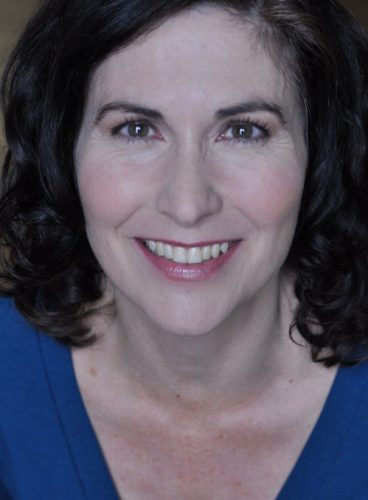

Covey’s focus was on Executive Function and time perception and time management – specifically how educators can craft classroom and rehearsal routines, mindsets and structures to support all of their student artists – but especially those with Executive function challenges.
Timlick’s focus was on metacognition and its role in executive function for creative artists.
The parts of the brain that control Executive Function help us estimate how long a task will take, which tasks we should attempt first, and how tasks will fit into our future goals.
“Students who struggle with Executive Function skills have been told they are stupid, lazy, and doomed to fail,” says Covey. “They hear these messages all their lives and start to believe them. Students with EF challenges tend to get 20,000 more negative comments than positive by the age of 10. We must turn that around. These skills can be learned – and , guided by empathy and accountability, can be explicitly taught. That’s where we come in.”
Timlick also chaired the Adjudicated Acting Panel at the conference as part of her leadership role on the executive board for ATHE.
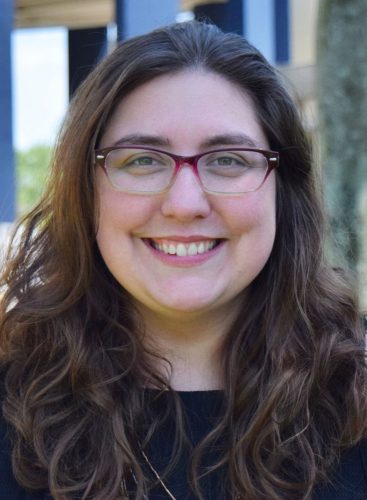
Assistant Professor Jennifer Rose Ivey presented in two panels and assumed a leadership role in the Design, Technology, Management Focus Group for the conference.
Ivey presented in the “Pedagogy Roundtable” where she shared some of her new and creative teaching techniques, including the practical final exam for period styles as well as her “consent to conversation cube” which helps theatre faculty and students navigate through the different roles they take on during their mentor relationships.
Ivey also presented on the “Making a Case” panel where she spoke about advocating for faculty through policy, course equivalencies, and combating the tendencies that undermine wellness inherent in theatre.
She also assumed a new leadership at the conference. Leading up to the Conference, Ivey served as a Conference Planner for the Design Technology Management Focus Group where she was integral in the communication and planning of the conference in the focus group, including helping and mentoring each panel.
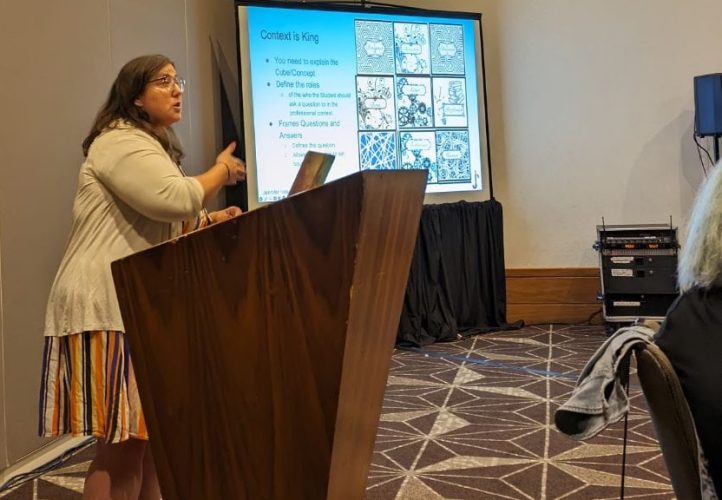
She now steps into a leadership role at the Conference as the Focus Group Representative. She will represent the group in the larger ATHE planning committee to give direct feedback, coordinate with other groups, and contribute to the planning of the conference in 2024.
“As I move into leadership of the Design Technology and Management focus group, I look forward to helping mentor and guide my peers as well as share the research I’m working on,” says Ivey. “ATHE is a unique place where we get the opportunity to interact between disciplines and with educators that no other organizations allow.”
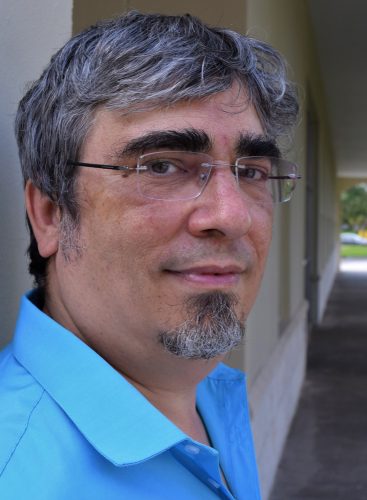
Associate Professor Michael Yawney presented in two sessions.
His first presentation was “Rebuilding a Stronger Foundation: a salon discussion on enhancing equity through theatre pedagogy.” In the session, he spoke about how teaching theory before looking at art decolonized work from other cultures.
His second presentation was “Devising and New Play Nurturing: Encouraging Diverse Voices Through New and Rebuilt Practices.” That session focused on how getting minority playwrights to discuss the work they loved and how it was structured, provided a way into non-mainstream dramatic structures.
“Working in Miami puts us ahead of the curve,” says Yawney. “The diversity of the artists and students in our community means that where we are working, the rest of the country will follow.”
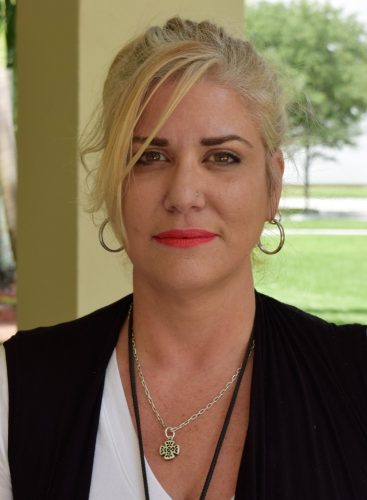
Assistant Professor Marina Pareja participated in two Design, Technology, and Management panels at the conference.
First, she was part of the DTM Pedagogy Roundtable: Advocacy & Engagement in the Classroom. The panel showcased a mix of projects, techniques, approaches, and topics that engage students with design and technology.
Pareja also presented in the “Advocating for Interdisciplinarity Among Theatre Faculty.” This roundtable discussion featured theatre designers, generalists, and historians sharing how they advocate for interdisciplinary work.
“I advocate for interdisciplinary practices because exploring other disciplines has given me countless opportunities for creativity and inspiration,” says Pareja. “As a result, my understanding of the world has grown, which has had a major impact on my design choices. This has led to more dynamic and engaging productions.”
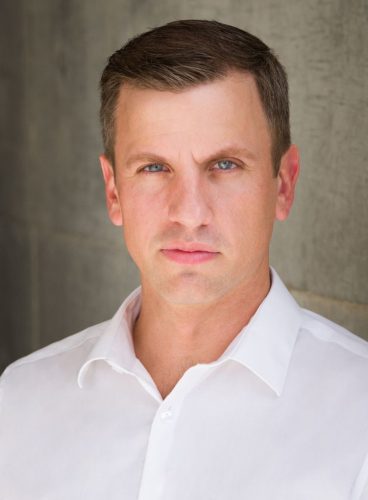
Assistant Professor Justin Packard presented as a debut member of the Adjudicated Acting panel. His adapted acting exercise was entitled “Missing Scene Études: Promoting Collaborative Play and Analysis Through a Russian Training Lense.” Participants in the exercise created missing scenes from a play in a collaborative and spontaneous improvisation. Justin adapted this exercise from his time at the Moscow Art Theatre and it is specifically aimed for introductory acting courses.
“I have found this exercise to be incredibly empowering for beginning actors because it promotes bravery, teamwork, and a willingness to take risks.”
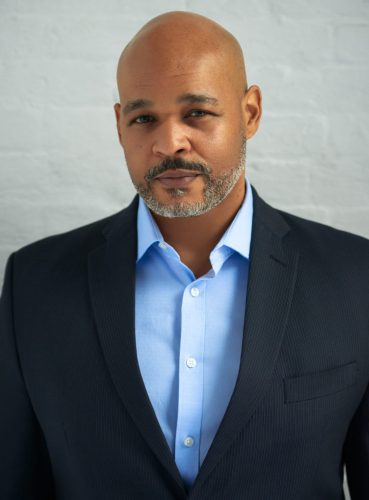
Assistant Professor Melvin Huffnagle served as an adjudicator and presented in the Adjudicated Acting panel. His demonstration was on integrating Michael Chekhov technique with the text of August Wilson.
“I believe the Chekhov technique is a great tool for BIPOC actors and directors (as well as non-BIPOC directors) to employ when approaching the work of August Wilson,” says Huffnagle.
On a yearly basis, FIU consistently has one of the strongest presences at ATHE. The knowledge and experience shared at the nation’s preeminent conference for theatre pedagogy is a testament to the caliber of our award-winning faculty.

